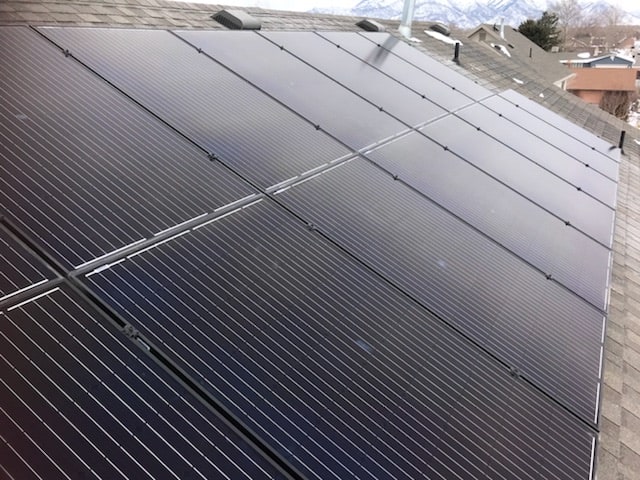Avoid Solar Power Purchase Agreements (PPAs)

Power purchase agreements, also known as PPAs, were started in the solar industry to ease the financial burden of installing solar panels. The problem is that this financial option has more cons than pros.
For Utahans considering a power purchase agreement, it is wise to look at the fine details before making a decision. The financing of a solar array makes a difference in the potential savings and value of the home.
Finding the best financing option for Utah homes requires homeowners to weigh the pros and cons of each option, which we will help you do!
An Introduction to Power Purchase Agreements
A power purchase agreement is similar to a solar lease. Both options would give the ownership of the solar array to the Utah solar company or solar array owner leasing the modules, not the homeowner.
Power purchase agreements normally last between 10 and 25 years. During this time, the owner pays a fixed rate for the electricity that they use from the solar array. The solar company installs and maintains the solar array for the duration of the agreement.
On the surface, this looks like a great deal for Utahans. The homeowner agrees to have rooftop solar installed for their homes, and in return, they have electricity from a renewable energy source at a discounted rate. However, there are cons to consider.
Understand the PPA
While many people don’t read all the fine print, an agreement (particularly one of legal stature such as a PPA) should always be thoroughly read and understood. Some power purchase agreements take more than they give, and many of the agreements are notoriously unclear, vague, or intransparent.
Trying to Move With A Power Purchase Agreement
While Utah homeowners can transition their power purchase agreement to new homeowners before their agreement it up, it is not ideal. While solar panels can add value to homes, solar arrays with power purchase agreements don’t increase home value, because the homeowner doesn’t own the solar array. It is also hard to convince homeowners to take on the remainder of any existing PPA, which means the homeowner has to determine how best to get rid of the power purchase agreement, and that can be as tricky as it is time-consuming.
Where Tax Credits Go
Since the solar company owns the solar array, all the tax credits and incentives associated with it go to the solar company, not the PPA lessor. In Utah, these credits include the Utah State Tax Credit and the Federal Tax Credit. While this may not be a con for Utahans who couldn’t take advantage of these incentives or credits anyway, those who qualify for them are missing out on big-time savings, provided their home’s monthly kWh usage is high enough.
Watch Out for Over-Installing Panels in PPAs
While not every solar company that offers power purchase agreements does this, some companies install more solar panels than needed to maximize the company’s profits. The solar company is the one that has the net metering agreement with the utility, which means they are the ones paid for excess solar generation.
Maintenance and Solar Panels Cleaning
Many solar companies offer maintenance and solar panel cleaning as an included service during the power purchase agreement. However, if installed correctly, solar panels typically don’t need much maintenance and cleaning.
Should Utah Solar Companies that Offer PPAs be Considered Utilities?
An argument that many states are having with solar companies that offer power purchase agreements is whether the company should be considered a utility. This debate stems from the fact that these companies charge their customers a rate for the solar-generated electricity their home uses instead of a fixed rate each month that a solar lease or loan would charge.
In Utah, this debate was settled in 2016 when Governor Herbert signed house bill 244. This bill essentially exempts solar companies that provide power purchase agreements from Utah’s public utility regulations.
However, if a power purchase agreement is what a customer wants, it may be better to do it through their regular utility instead of a solar company. Many utility companies offer solar and other renewable energy rates. At least through their utility, they could still sell their home without the stress of also selling or buying out the power purchase agreement.
However, this option isn’t as beneficial as owning the solar array. Let’s take a look at some more reasons why owning a residential solar array makes more sense than renting it.
Renting Power Vs. Owning Power
The real debate isn’t whether to get a power purchase agreement or solar through the local utility. It is whether the homeowner should rent or own their power.
There are two major wins that owned solar arrays give homeowners. These include solar savings and potentially even increased home value.
Comparative Savings of Owned Solar for the Home
When homeowners choose to purchase solar, whether they pay with cash or through a loan, they save more than they would if they continued to pay for their electricity through their utility over the 25-year solar panel warranty. These savings are largely due to the comparative cost of solar to utility rates. If the array lasts even longer, which most do (40+years), the array saves the customer even more money.
In Utah, customers who purchase a 5-Kilowatt solar array with cash have an estimated savings of $22,828 over 25 years. While homeowners who purchase their arrays through a HELOC loan have an estimated savings of $16,223 over 25 years, the savings of purchasing solar are well above the $4,874 of savings a power purchase agreement is predicted to save Utahans.
Increasing Home Value
As the icing on the cake, homes with a purchased solar array often increase in value. According to Zillow’s study, the average is an increase of 4.1 percent.



Send a Message
Oops! We could not locate your form.